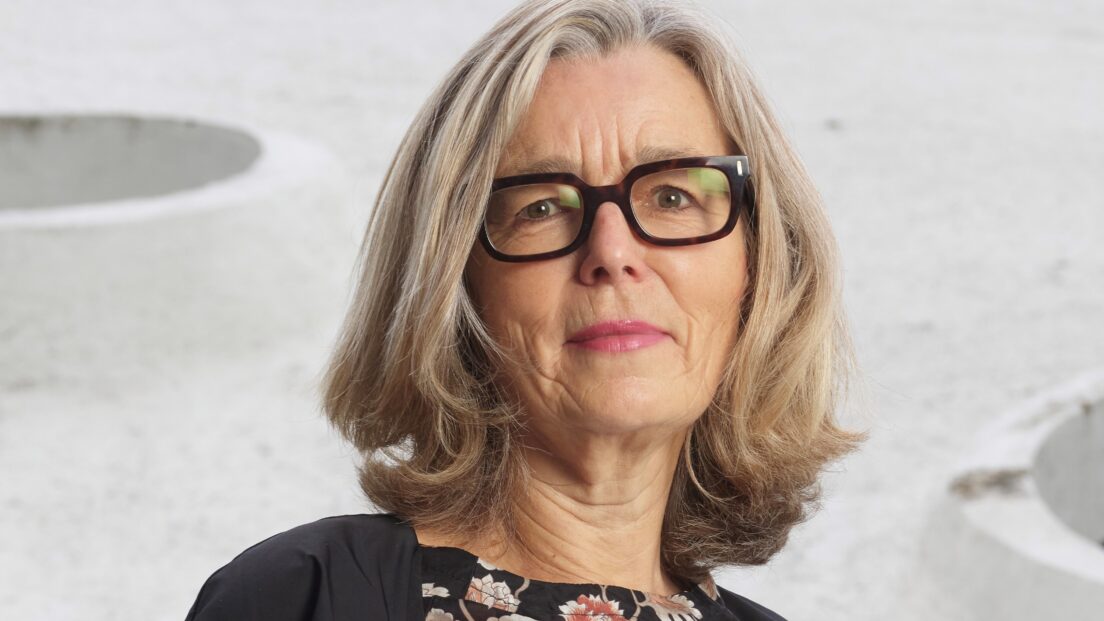Ariane Widmer Pham talks about architectural culture and sustainable urban development in Geneva

Ariane Widmer Pham, winner of the Brandenberger Foundation prize, shares her vision, role and views as a member of the foundation's board and as an architect. She discusses the challenges and opportunities of building culture in dense urban areas, particularly in Geneva, and stresses the importance of concerted cross-sector planning.
Ariane Widmer Pham is a passionate architect and urban planner who has been working for many years to promote a high-quality built environment in Switzerland. Her involvement with the Foundation for Building Culture in Switzerland is aimed at raising awareness of the importance of building culture among a wide audience – from professionals and local authorities to the business and property sectors. Ariane Widmer Pham emphasises that good urban planning, careful architecture and a high level of building culture make a decisive contribution to ensuring that people feel comfortable in their living and working environments.
The importance of building culture
Building culture is not something that can be taken for granted across the board, but something that people need to be aware of. Ariane Widmer Pham explains that building culture should be integrated into basic education to foster a deeper understanding and appreciation of our built environment. The sense of community, the simplicity of construction and the closeness to craftsmanship, as was once the case, has been lost. Today, it is important to re-establish a relationship with materials and construction, and to promote the collective idea of the city as a shared project.
The challenges and objectives of urban planning in Geneva
Geneva is characterised by a very small area, which results in high urban density and a strong need for regulation. This context calls for meticulous, quality-oriented planning. Widmer Pham emphasises the need to develop projects that are sensitive to and in dialogue with the city’s heritage. Geneva was one of the first cities to be included in the Federal Inventory of Built Sites of National Importance to be Protected in Switzerland (ISOS), which has helped to reinforce quality and sensitivity with regard to urban development.
Conurbation project and ecological transition
The Greater Geneva Conurbation Project, launched in 2007, has made a major contribution to the coordination of transport and urban development. The development of inter-municipal sectors coordinated with transport infrastructure has proved its worth, but still faces major challenges. The vision of development that guides agglomeration projects is regularly revised to meet current requirements, such as the goal of zero net emissions.
Participatory processes in urban planning
Participatory approaches are an essential part of urban planning in Geneva. Since 2015, the law has stipulated that planning processes must be accompanied by consultation procedures. These procedures allow the population to share their experiences and needs, which leads to greater acceptance of projects. Widmer Pham emphasises that broad citizen participation helps to develop projects that meet the real needs of local residents.
Future prospects and innovative approaches
The challenges of densification and sustainable urban development in Geneva call for innovative approaches and close collaboration between different players. They require nuanced approaches to identifying and mobilising sectors with potential for change, particularly in post-war peripheral areas. This development sometimes involves an approach that can be described as “lace urbanism”, in which the solutions lie more in architecture than in planning. Ariane Widmer Pham stresses the need to approach existing buildings with sensitivity, in order to recognise and exploit their potential.
Ariane Widmer Pham is an impressive example of how building culture and sustainable urban development go hand in hand. Her commitment and expertise are helping to ensure that Geneva continues to serve as an example of quality urban planning. Promoting a culture of building, participatory processes and innovative approaches to densification are essential elements of sustainable urban transformation that meet the needs of residents as well as the requirements of environmental protection and sustainability.
au sujet de l’auteur
Ariane Widmer Pham, de formation architecte EPFL, est actuellement urbaniste cantonale de Genève. A ce titre elle est responsable de la vision et de la qualité du développement territorial. Auparavant en tant que directrice du bureau intercommunal SDOL, elle a été en charge de la mise en œuvre de la stratégie de développement de l’Ouest lausannois. Son travail a permis aux huit communes d’obtenir le prix Wakker en 2011. De 1999 à 2002 elle a dirigé le département de design d’Expo.02.
Dans ses activités elle s’engage dans la transmission, la sensibilisation et la défense d’un développement urbain de qualité. Elle est membre de plusieurs comités d’organisation actives dans le domaine du territoire et de la culture. En 2022, elle obtient le prix de la fondation Brandenberger pour son engagement professionnel au service de l’aménagement du territoire, comme acte collectif pour un développement durable.